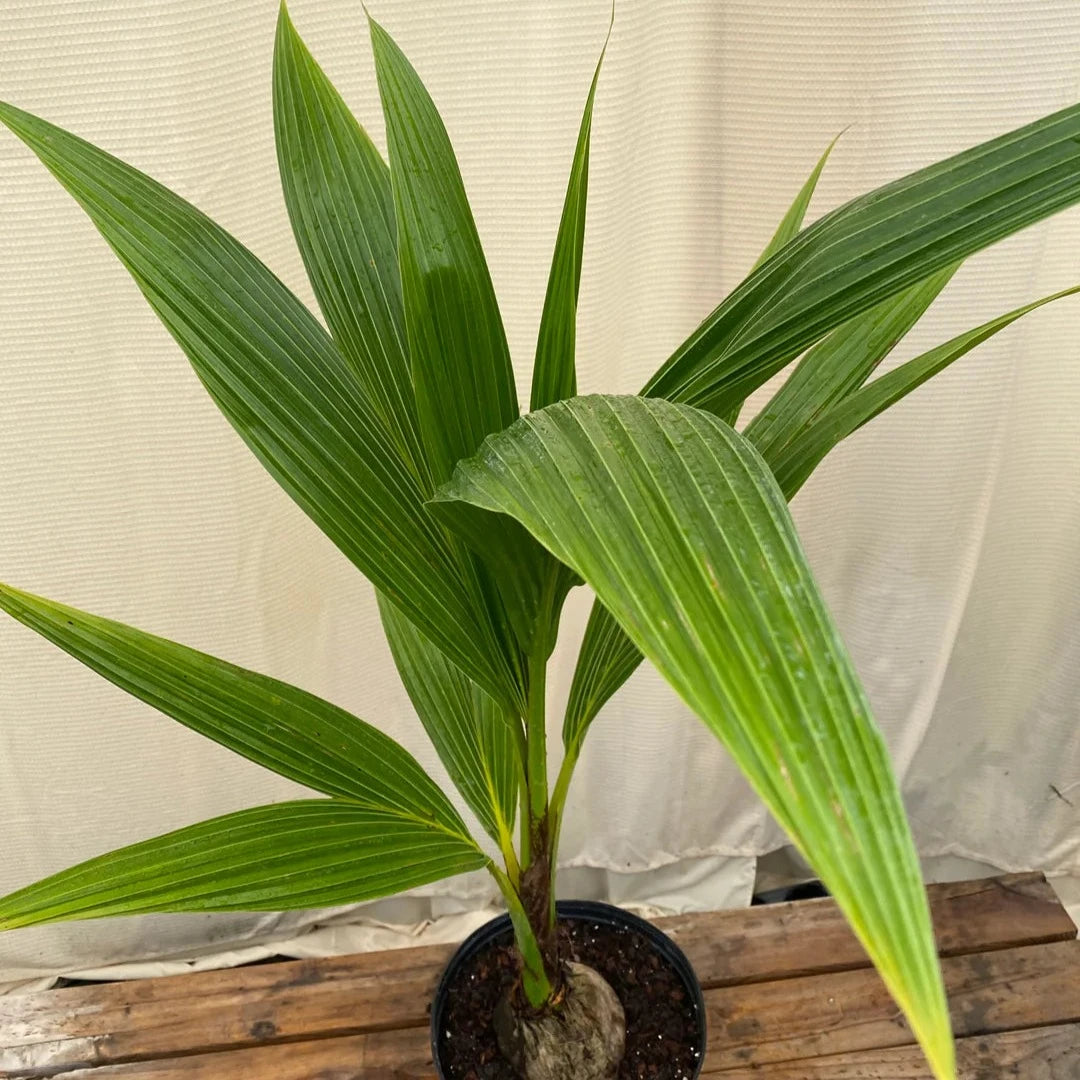Coconut palm
Coconut palm
Couldn't load pickup availability
Botanical Name: Cocos nuciferaNative Region/Environment: Believed to have originated in South Pacific. Sun/Light: Direct sun, minimum 6-8 hours per day. Artificial light is okay. Temperature: USDA Hardiness 10-12, but provided indoor or heated winter protection it truly can be an indoor plant. High heat tolerance. Bring outside to patio once temperatures are in 60's. Not cold tolerant. Water: Drought tolerant once established and conversely can handle brief periods of some standing water. Well draining soil. Soil: Organically rich, porous composition. Growth Pattern: Slender trunk with a slightly swollen base, often slightly curved. Mature Size: 6'-12' indoors and 20'-60' outdoors. Attributes: A coconut palm will grow in height relative to its container so a palm may be dwarfed to a more manageable height in a root bound pot. Coconut palms are self cleaning, in that their trunk is left marked but smooth, as the fronds naturally fall off. There are no aggressive thorns or required frond shearing. Home grown, tropical coconuts. Typically begins to produce coconut clusters when trunk is 3'-5' tall. Pot: Shipped modified bare root and wrapped. Highly recommend SDN custom blended soil, at minimum around the root base. |
Cocos nucifera, the tropical Coconut palm whose name is derived from an old Portuguese word 'coco' which means "head" or "skull" due not as much for the resembling size and shape but for the the 3 indentations similar to facial indentations. The coconut palm, symbolizes the tropics where they are used for food, fuel, building materials and medicines.
Coconut milk or coconut water is commonly available everywhere. Coconut milk is coconut water with the inner flesh finely grated into a creamy, rich emulsion higher in calories, fat and flavor.
Completely cold intolerant, the palms can grow up to up to 100' and bear 30-75 coconut fruits annually, favoring full sunlight and abundant moisture.
Tolerates salty conditions 3-4' palms


